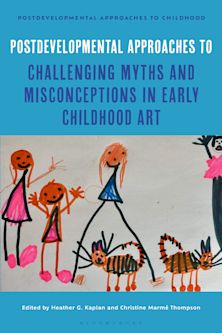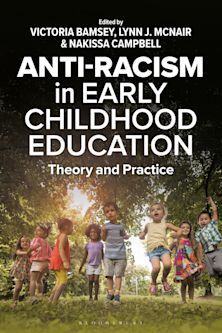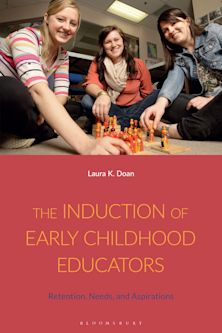- Home
- ACADEMIC
- Education
- Early Childhood Education
- What's the Right Thing to Do?
What's the Right Thing to Do?
Promoting Thoughtful and Socially Responsible Behavior in the Early Childhood Years
What's the Right Thing to Do?
Promoting Thoughtful and Socially Responsible Behavior in the Early Childhood Years
This product is usually dispatched within 1 week
- Delivery and returns info
-
Free US delivery on orders $35 or over
You must sign in to add this item to your wishlist. Please sign in or create an account
Description
Making choices is one of the more pervasive acts of life. Almost every action we take demands that choices be made. Knowing how to choose wisely, to choose after reflection, to be aware of what motivates that choice, to see the consequences of that choice on others enables us to live healthier, more productive and more responsible lives.
We now live in a world in which our traditional moral exemplars have been less than honorable in their public behavior. With fewer “heroes” and flawed role models, how are children to come to an understanding of what’s right, what’s good, decent and socially responsible? “Do as I say, not as I do” is hardly a viable tenet to guide children’s choices.
This book offers important tools for carrying out effective strategies that build caring environments in the classroom and home; for teaching children to weigh decisions in the face of potential consequences, examine rationales for their choices, and study the effects of their choices on others, i.e., to think more carefully about ethical problems, in the presence of the moral freedom to determine for themselves what it means to lead a good and virtuous life.
Table of Contents
Acknowledgments
Introduction
Chapter 1- It’s a Dilemma
Theoretical Foundations of Moral Behavior
Chapter 2- Making Sense of a Complex World: What’s the Right Thing to Do?
What Can Teachers and Parents Do?
Chapter 3- Children as Decision Makers
Thinking and Deciding
Some Caveats
Freedom to Choose and Empowerment
Chapter 4- Introduction to the World of Moral Dilemmas
It’s Complicated
Adult-Child Discussions About Moral Issues
The Value of Small Group Work
Chapter 5- Stories, Mini-Cases, Books, Films and Classroom Incidents
What’s a Case?
Twenty-two Mini-Cases
Inviting Children’s Stories About Their Own Dilemmas
Children’s Books and Stories
Films
Chapter 6- Putting Moral Behavior into Action
Community Projects
Extracting Meaning from Experience
Journals
Chapter 7- Discussion Strategies to Examine Moral Issues
Learning Discussion Skills by Observing the “How” in Action
The Interactive Dialogue
The Teacher/Parent in the Process
Non-defensive Awareness of Self
Chapter 8- Even Children Can Make a Difference
Children Who Make a Difference
Bibliography
About the Author
Product details
| Published | May 24 2019 |
|---|---|
| Format | Hardback |
| Edition | 1st |
| Extent | 108 |
| ISBN | 9781475848564 |
| Imprint | Rowman & Littlefield Publishers |
| Dimensions | 9 x 6 inches |
| Publisher | Bloomsbury Publishing |
About the contributors
Reviews
-
What’s the Right Thing to Do?: Promoting Thoughtful and Socially Responsible Behavior in the Early Childhood Years is clear, concise, and on target. This book is a valuable contribution to an important field. Indeed, what can be more important to our future than the moral education of the young?
William C. Cliett Jr., Ph.D, former superintendent of schools, Gainesville, Florida
-
The writing in What’s the Right Thing to Do?: Promoting Thoughtful and Socially Responsible Behavior in the Early Childhood Years is clear and persuasive, and the book itself is significant and timely.
James Raths, emeritus professor, University of Delaware
-
As an educator for over 40 years, I can’t think of a timelier issue than the development of moral behaviour in our students. I began reading What’s the Right Thing to Do? and couldn’t stop until I was finished; it’s that compelling and easy to read. Once again Selma Wassermann has given teachers a very inspiring book with just the right balance of theory and practical activities to use in the classroom tomorrow.
Gary Squire, retired teacher & principal, North Vancouver School District, former faculty associate, Professional Development Program, Simon Fraser University
-
During her forty years as an author, Selma Wassermann has been a consistently progressive force, inspiring learning and compassion.
Alan Twigg, BC Bookworld
-
Make no mistake - no amount of our 21st century computer or technological proficiency can replace the need to guide kids towards informed moral choices as they develop into young adults. Selma Wassermann's wise book guides us in the training of a child’s moral development, for teachers in the classroom and parents over the kitchen table.
Dr. Mel Kaushansky, chemical neuropsychologist



































